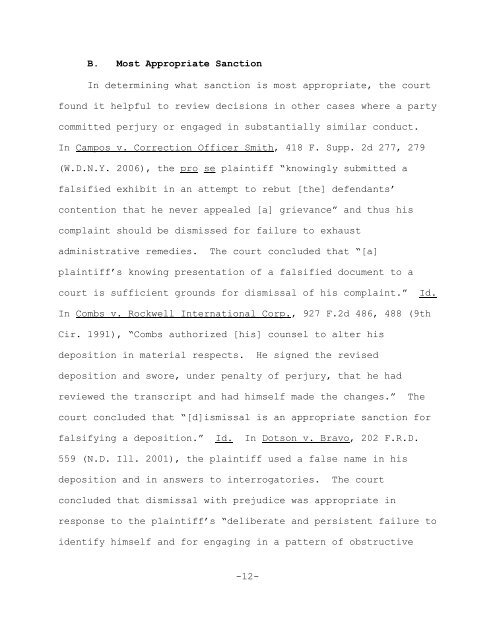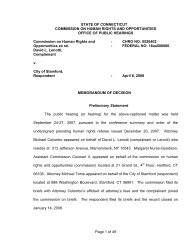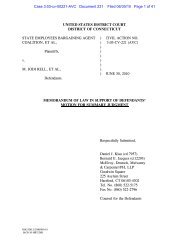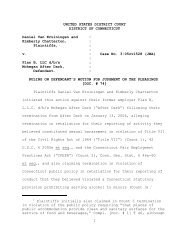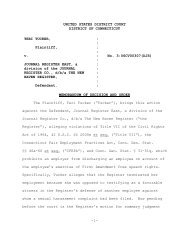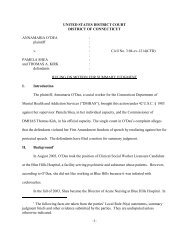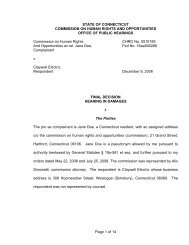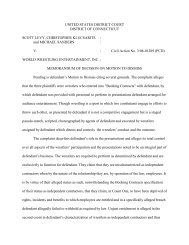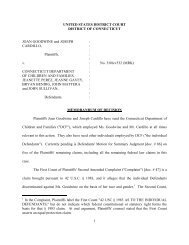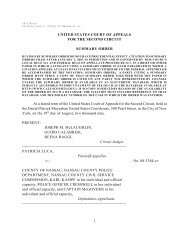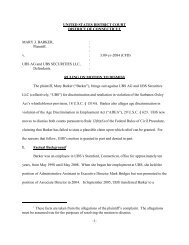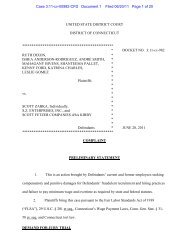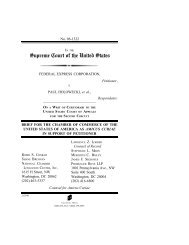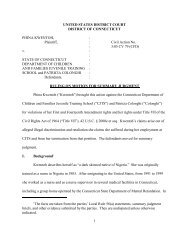Radecki v. GlaxoSmithKline - Connecticut Employment Law Blog
Radecki v. GlaxoSmithKline - Connecticut Employment Law Blog
Radecki v. GlaxoSmithKline - Connecticut Employment Law Blog
Create successful ePaper yourself
Turn your PDF publications into a flip-book with our unique Google optimized e-Paper software.
B. Most Appropriate SanctionIn determining what sanction is most appropriate, the courtfound it helpful to review decisions in other cases where a partycommitted perjury or engaged in substantially similar conduct.In Campos v. Correction Officer Smith, 418 F. Supp. 2d 277, 279(W.D.N.Y. 2006), the pro se plaintiff “knowingly submitted afalsified exhibit in an attempt to rebut [the] defendants’contention that he never appealed [a] grievance” and thus hiscomplaint should be dismissed for failure to exhaustadministrative remedies. The court concluded that “[a]plaintiff’s knowing presentation of a falsified document to acourt is sufficient grounds for dismissal of his complaint.” Id.In Combs v. Rockwell International Corp., 927 F.2d 486, 488 (9thCir. 1991), “Combs authorized [his] counsel to alter hisdeposition in material respects. He signed the reviseddeposition and swore, under penalty of perjury, that he hadreviewed the transcript and had himself made the changes.” Thecourt concluded that “[d]ismissal is an appropriate sanction forfalsifying a deposition.” Id. In Dotson v. Bravo, 202 F.R.D.559 (N.D. Ill. 2001), the plaintiff used a false name in hisdeposition and in answers to interrogatories. The courtconcluded that dismissal with prejudice was appropriate inresponse to the plaintiff’s “deliberate and persistent failure toidentify himself and for engaging in a pattern of obstructive-12-


